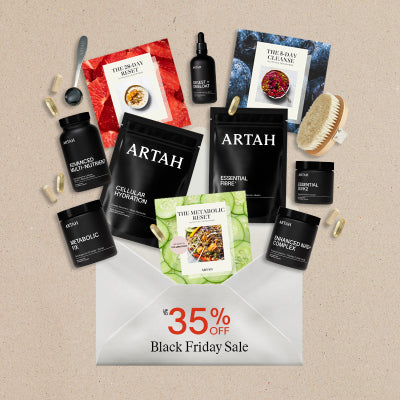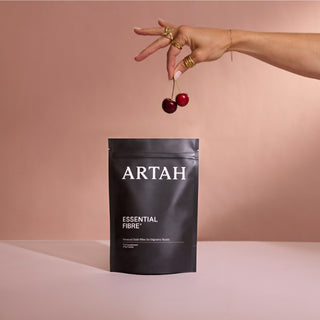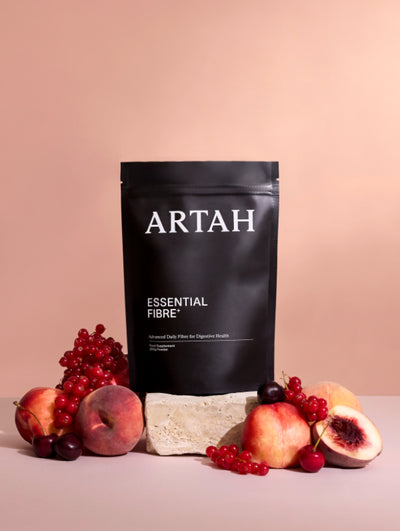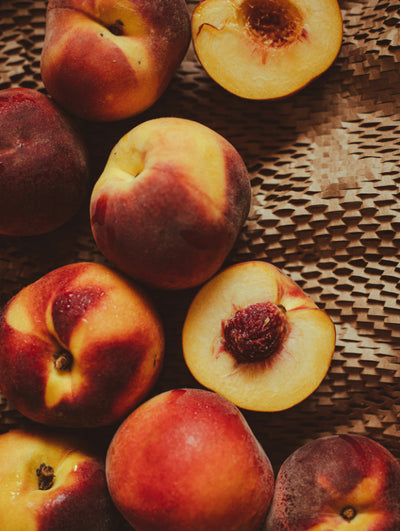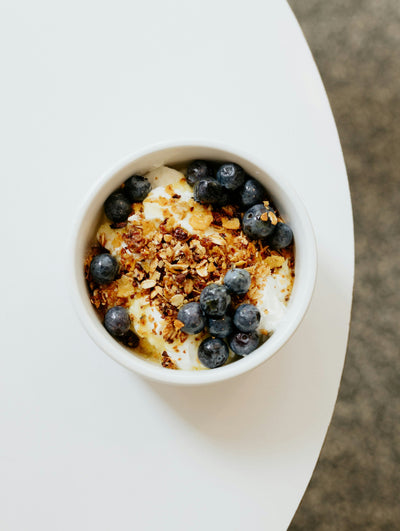If you have been as engrossed in the Olympics this year as we have, you’ll have been utterly wowed by some incredible performances by team GB and beyond. For these athletes, peak performance is the ultimate goal, so taking care of their health is non-negotiable. This week on the journal, we’ve rounded up our top 4 take-aways from the Olympics to help us stay inspired to look, feel, and perform our best. Here’s what some of the best athletes do.
They know that consistency is king.
This one is so important, especially as quick fixes and magic bullets are still rife across social media. Regardless of whether you’re working on a professional goal, a nutrition goal, or a physical goal, real results take time, patience, and consistency, and Olympians are the perfect example of this. Being consistent doesn’t mean that we need to do everything perfectly each day; in fact, acknowledging that this is an unrealistic standard is just as important for keeping motivation in check. US Heptathlon star Anna Hall does this by not allowing things to lag too long after the inevitable setbacks that come our way. "I establish my routine by building habits and never missing twice in a row," she says. "Building a routine is pretty hard so it's really important to me if I mess up one day and don't find the time, making sure that the next day I do." And if you're new to the world of health and wellbeing, we love these encouraging words from Brazilian athlete Hugo Calderano: “It's important to not to rush things. I think at the beginning you can set a goal for yourself to do it, maybe even for five minutes a day. The hardest part is to start. And once you start, you get rolling and things are much easier."
Our favourite hack to promote consistency:
Do an audit of your health and identify 1 or 2 things that you can start with to build momentum. Whether it is daily movement, swapping an ultra-processed staple for fresh fruit and nuts, or starting your day with 1L of electrolytes, make it simple, achievable, and something you can start now.
They focus on active recovery.
The good news is this: recovery is having a moment. It’s important for injury prevention, immune resilience, muscle recovery, metabolic health, improves circulation and more. It’s not just for physical recovery, allowing time for mental recovery can be as important. The best recovery tools for you will depend on your lifestyle, and can be as simple or specific as you’d like. From working on sleep, stretching, or walking to foam rolling, a gentle swim or meditation, finding something that works for you can be a game changer. For South African Surfer Sarah Baum, it’s as simple as prioritising sleep. Her top tip is to be disciplined with tech at night. ‘Technology can keep you awake and keep the brain moving, so just put your phone down 45 minutes before you go to sleep.’
Our favourite recovery hacks:
Electrolyte packed Cellular Hydration, which boasts magnesium to combat fatigue and potassium to support muscle function, and 15 minutes of yin yoga before bed.
They are disciplined with their nutrition.
One theme you’ll see if you investigate the nutritional regimes of different athletes is that they eat for energy, and they know what works for them. Team GB breakdancer Kid Karam prioiritises getting a variety of plants each day and adds in functional foods like Turmeric for its added benefits for recovery, while Greek surfer and body builder Alexandra Kolla focuses on whole foods, home cooking, and avoiding ultra-processed foods to stay fuelled for his demanding training schedule. For athletes, it’s not just about calories. Getting the right foods, in the right amount, can make all the difference to their training and performance, and whilst the demands of the average individual are nowhere near those of athletes, it’s still important. Our nutrition choices influence our ability to deal with stress, our energy, our immunity, how well we perform at work, our mood and more.
Our favourite nutrition hacks:
Getting 25g of protein with at least 1 serving of veg for your breakfast, and focusing on a predominantly whole food diet.
They work on their mental health.
Adam Peaty, Simone Biles, Noah Lyles, and Tom Daley - along with being some of the most accomplished Olympic athletes, they’ve all been open about their struggles with mental health, which has paved the way for a more open and accepting dialogue around this important topic. Team GB BMX Freestyle gold medalist Charlotte Worthington is another inspiring example, who decided to take a break from her gruelling training schedule to focus on her mental health and rediscover the joy of riding. "If I didn't take a break, I would have just ground myself into the ground. I think talking about it really helps, and it's difficult because if you're a high-performing, high-striving athlete, then you don't really want anyone to see your weaknesses," Worthington said in a Paris 2024 Olympic interview. Taking care of our mental health is often an afterthought, or a reaction of getting to a stage where it all becomes too much. But, taking proactive steps to take care of our emotional state - whether it's daily mindfulness or having the courage to step back from something that's not serving us - will allow us to perform better for longer, enjoy our successes, and stay connected to the ones that are most important to us.
Our favourite mental health hacks:
Breath work to help ease from a stressed state to a restful state and opening up to friends and family about our struggles. If you feel like you're struggling with your emotional wellbeing, it's important to seek out a therapist or mental health professional who can offer more structured support.
Disclaimer: The information presented in this article is for educational purposes only and is not intended to diagnose, prevent, or treat any medical or psychological conditions. The information is not intended as medical advice, nor should it replace the advice from a doctor or qualified healthcare professional. Please do not stop, adjust, or modify your dose of any prescribed medications without the direct supervision of your healthcare practitioner.
References:
All quotes sourced from Olympics.com








































